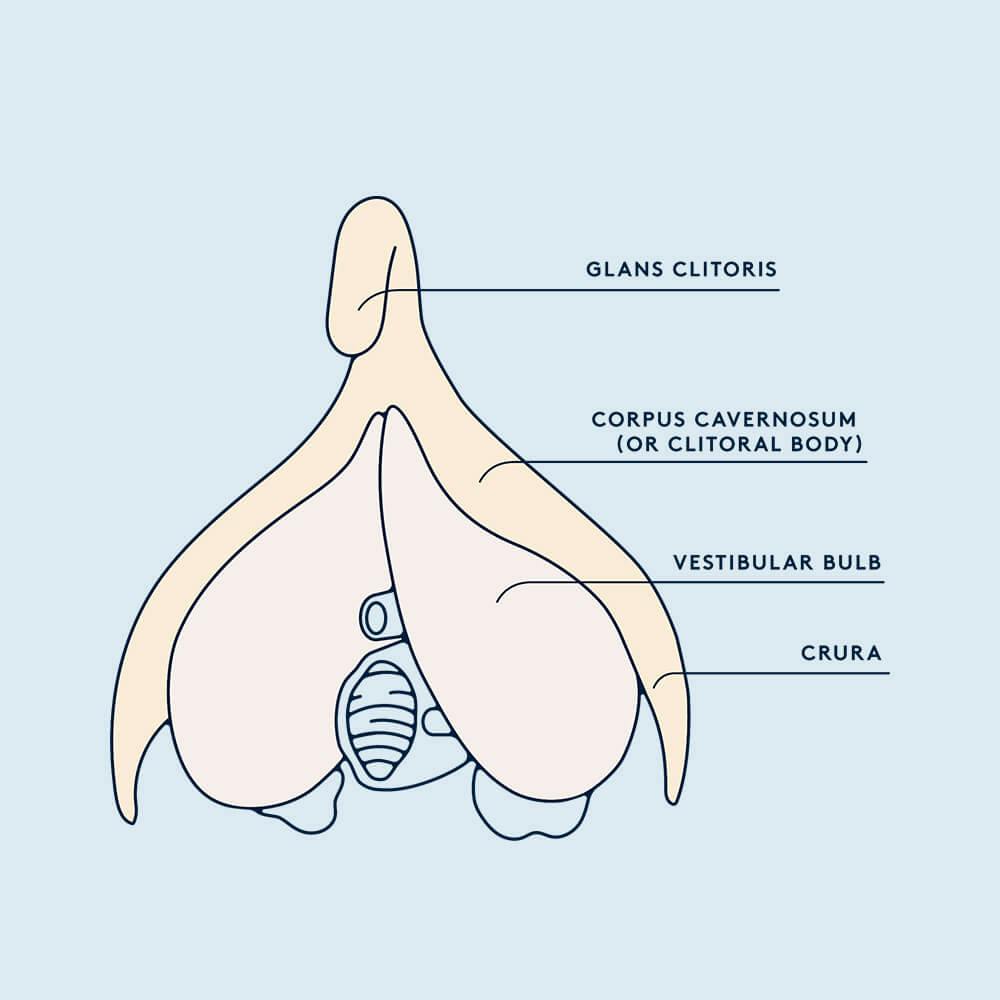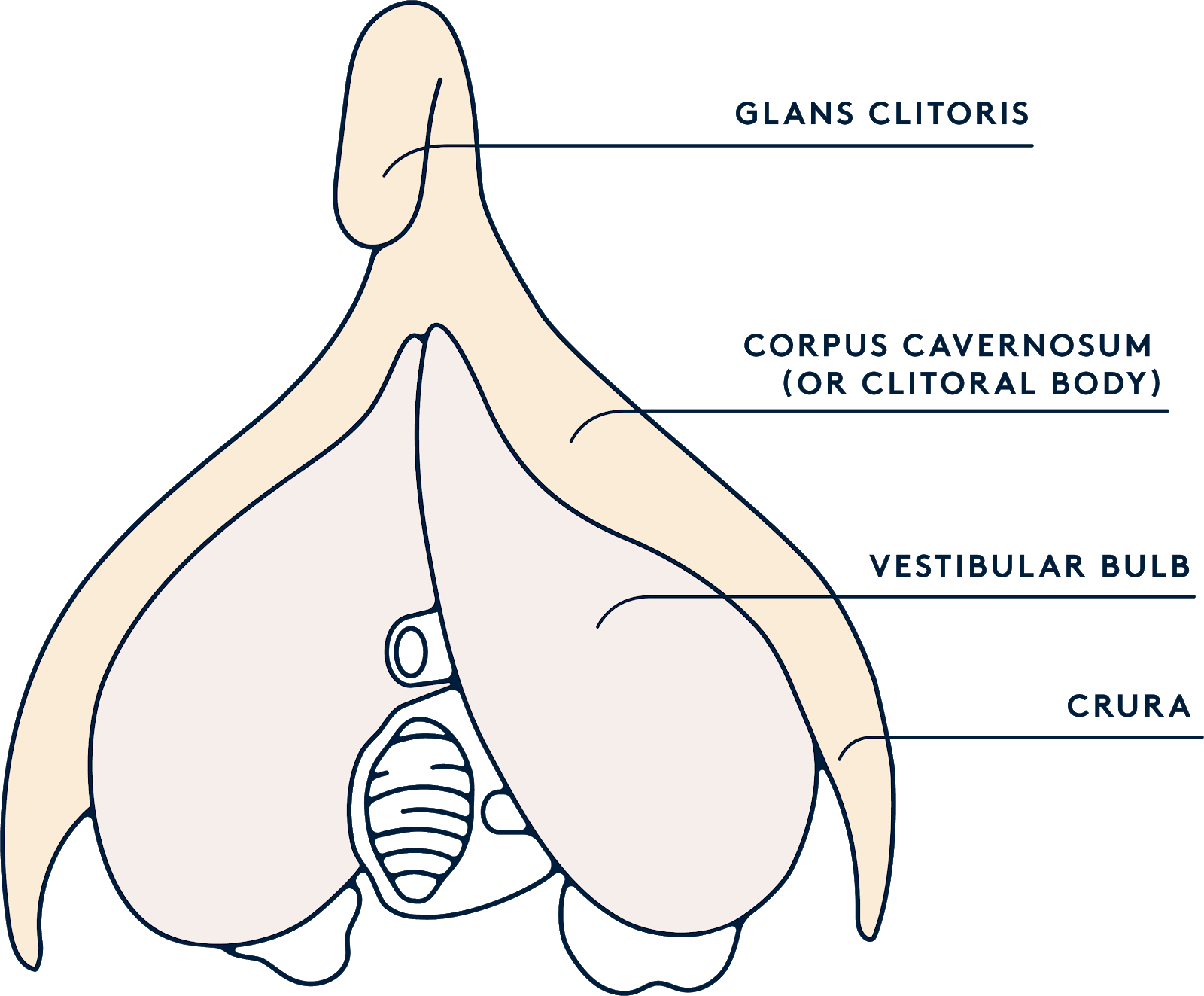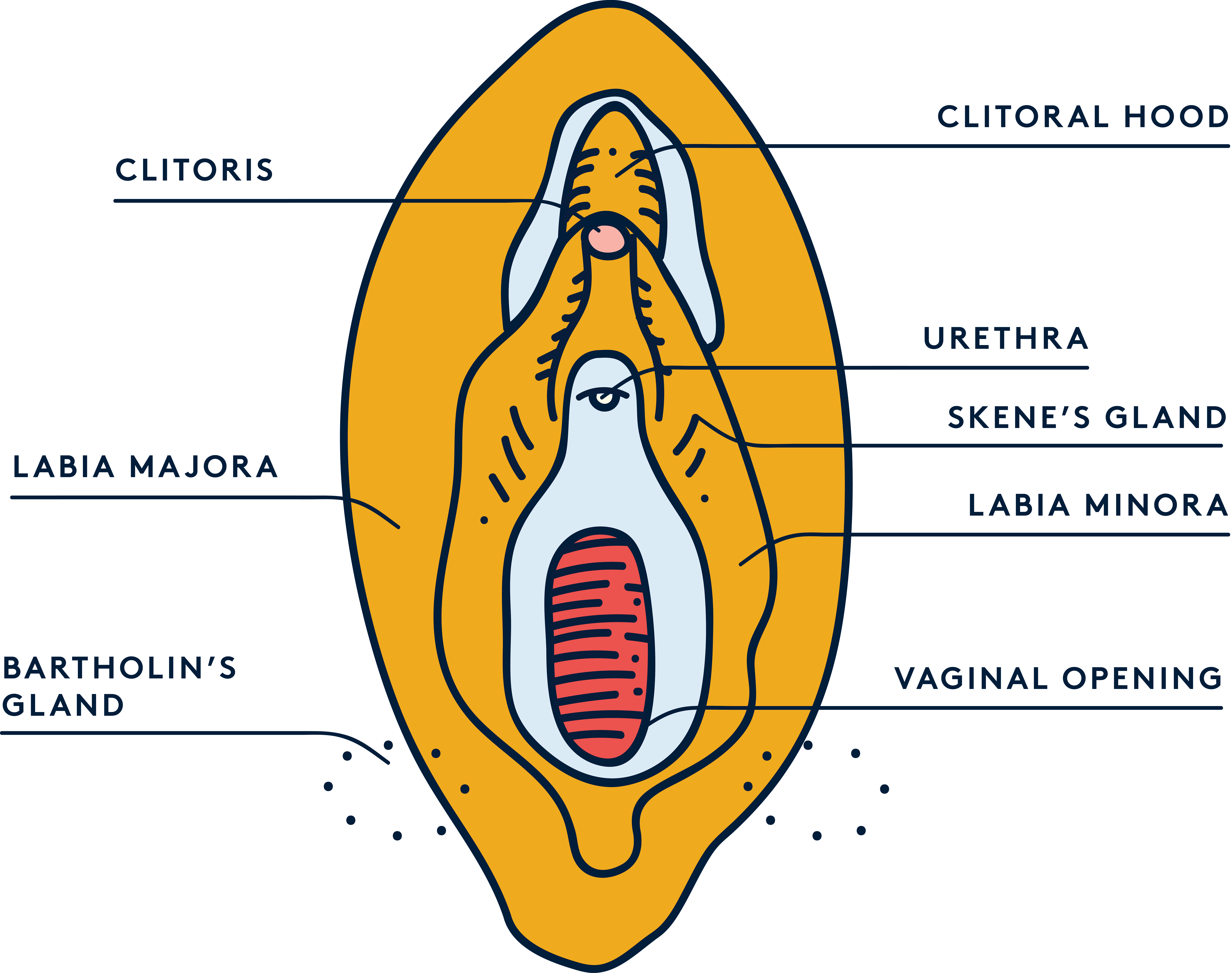The clitoris has just one purpose, and that is pleasure. So experiencing frequent clitoral pain (officially called clitorodynia) can be confusing and disheartening.
As with other vulva pain (officially called vulvodynia), a sore clit is incredibly common. However, that doesn’t mean it’s normal and should just be ignored or suffered.
The clitoris is bigger than it looks
Supplementing your vaginal flora with good bacteria can prevent UTIs. Daye's ProViotics can help you strengthen your vaginal microbiome and replenish it with good bacteria so it can fight off pathogens like E.coli, which cause UTIs.
To troubleshoot pain, it’s a good idea to know more about the part of the body that’s hurting. The clitoris is more than just a little bump a couple inches above the vagina – that part is just the head (glans). The rest of the clit is internal, and it wraps around the vagina.
The penis and the clitoris are estimated to have the same number of nerve endings, but in the clit they’re condensed into a much smaller space, making it even more sensitive.
Because of this very sensitive nature, the clit is prone to pain and itching. However, that doesn’t mean it’s normal and should just be ignored or endured.
Clit sensitivity
Because the nerves on the clit are bundled together, some people are hypersensitive to touch and stimulation. That sensitivity could be the culprit for the discomfort. For some, directly touching the clitoris can be painful just because this area is so sensitive.
This sensitivity is different from clitorodynia – which is chronic pain. Luckily clitorodynia is a rare condition and regular clit sensitivity is easier to manage.
Treating clit sensitivity can be as simple as changing the way you touch your clit because when your body gets aroused, your pain threshold changes. Sometimes a clit may hurt when directly touched at the beginning of sexy time and before the person has become aroused.
But as the person becomes more aroused, the clit touch can start to feel really good. One way to figure out what kind of pressure and rhythm work best for you is to experiment while masturbating.
Be gentle with the clitoris
Go easy, gradually circle around until it feels good to touch, and stroke over the clitoral hood, rather than on the head directly.
Most clits don’t enjoy the DJ treatment right off the bat: rubbing hard and fast like you’re scratching a record. Go slow, go easy, and increase the pressure and tempo only if you feel like it.
Use lube on the clit
The clitoris doesn’t produce lubricant, like the vagina does, so you’ve got to bring your own! Dryness increases friction, which causes pain. Use your own natural wetness, or a store-bought variety of lubricant to make fingers glide across the clit.
If lube and gentle touch take care of the problem, then congratulations! If you’re still experiencing vaginal pain during sexy time or otherwise, you may want to consider other potential causes.
Infections that can cause your clit to hurt or itch
Clit pain or itching becomes more serious when an infection is involved. The most common infections are a sexual transmitted infection (STI), thrush, or bacterial vaginosis (BV). In case of an STI, BV or thrush, you’ll need to see a doctor who’ll prescribe you the necessary cream, ointment or medicine.
Other potentially serious causes of clitoral pain or itching
Besides the four infections – STIs, UTIs, BV or thrush – there are some other serious reasons that might cause your clitoris to hurt or itch. Note that these are rare conditions, but it's good to know about them nonetheless.
Other serious conditions. In some very rare cases, clitoral pain could be a symptom of a life-threatening condition like cancers or a serious infection.
When to seek medical advice
When clit pain, itching or burning worsens, it is important to seek medical advice. Your healthcare provider will diagnose you and prescribe the necessary treatment. If you are experiencing any of these symptoms or conditions, consider seeking professional help from a healthcare provider.
- When a minor irritations or itch worsens
- When you are experiencing a high fever, chills, and/or rapid heart
- When a change in habit does not help the itch or pain go away
- When you have unusual vaginal discharge
- When you notice a foul odour coming from your vagina
- When you also experience abdominal, pelvic, or lower back pain
- When your vulva or vagina causes severe pain or burning
- When you detect sores, blisters or spots on your vulva or vagina
- When you detect that your clitoris is swollen for more than one day
- When you are pregnant and experiencing pain or itching
Left untreated, these causes can lead to serious complications but remember, that it’s quite uncommon for these things to happen.
There are so many reasons why your clit might hurt, itch, or burn. In most cases, the cause can be easily treated. That said, it’s important to educate yourself on symptoms to look out for so you know when to seek help from a healthcare provider.
In the end, just know that clit pain and itching are the body’s way of saying that something is wrong. Listen to your body and stop when it hurts. You don’t have to suffer through the pain.
This is an excerpt of an article originally published by O.school. Click here to read the full article!







